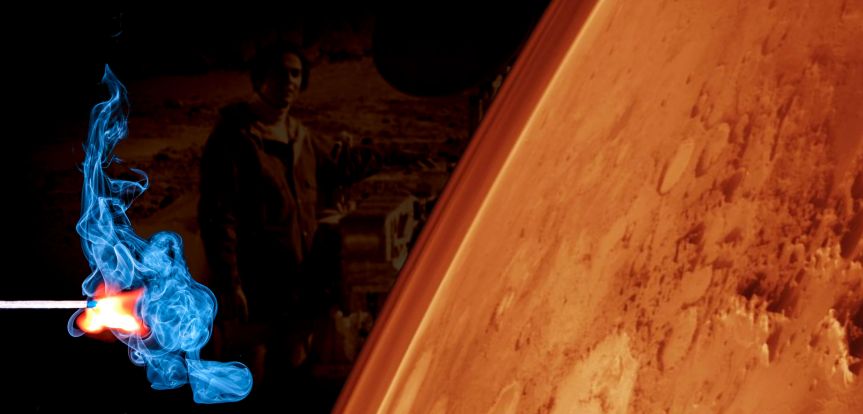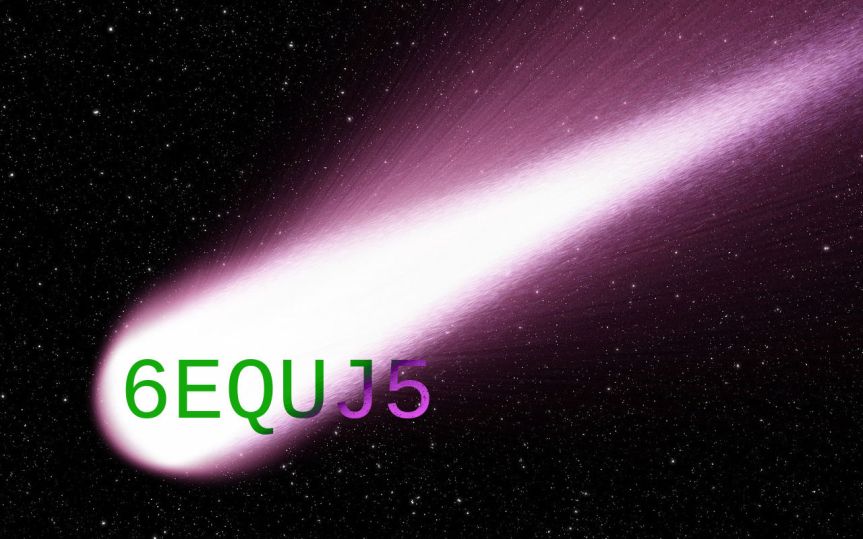Wrote this a while back based on a writing prompt from /r/writingprompts:
“Alexander Pope wrote, ‘Nature and nature’s laws lay hid in night. / God said, Let Newton be!'” As soon as I flicked the lighter, the spherical flame danced near my thumb. I touched it to the end of the rolled paper, then brought the other end to my lips and inhaled. “And all was light.”
Forty-eight hours until my next duty shift. With only one week until the SpaceX ship “Ghost of Christmas Future” made its historic landing, I was beginning my final scheduled weekend break. Two days with no landing simulations, no laboratory activities, no maintenance duty. Just me, myself, and I.
And my roommate. In the hammock nearby, he chuckled and stretched out. Most of his free time was spent staring out the porthole, watching Mars grow ever larger. “Care for a hit, Carl?” I offered, but he held up his palm and shook his head. “You know I can’t,” he said sadly.
I shrugged and took another puff. “You know we’re naming our colony after you?”
“Sagan City,” he nodded, still staring out the porthole. “It must’ve bruised your CEO’s ego considerably not to name it Muskopolis.”
“Elon Musk himself allowed us to vote. The scientists were adamant.” Smoke poured from my lips as I spoke, curling in unusual ways as my breath yielded to the air currents from the ventilation system. I closed my eyes for a moment. There was something about microgravity that made mary jane extraordinary. “You’re not pleased? It’s quite an honor.”
“Newton would be pleased,” Carl answered. “I might’ve preferred something more whimsical, like ‘Helium’.”
I imagined stepping out of the “Ghost of Christmas Future” airlock, my boots printing the Adidas logo into the Martian regolith, and there in the distance, Dejah Thoris, princess of Mars, beckoning me forth. “You’d have my vote, but you’d be the minority. I think ‘Bradbury’ was the runner-up.”
“Yes, he told me so.” Carl also closed his eyes. His spectral chest rose and fell in imitation of breathing. His face grew melancholy, as though recalling the experiences of his youth.
“I don’t get it, Carl. You’ve been dead all these years. A ghost. You can’t eat or drink. I’ve never seen you sleep. You obviously can’t blaze, and I’m guessing you can’t get laid, either…”
He nodded wearily.
“So why do you stick around? Why do any of you ghosts stay?”
You could say that “Ghost of Christmas Future” was haunted by its past. Percival Lowell. Angeline Stickney Hall. Robert Goddard. Neil Armstrong. To most of the crew, this would be a metaphor for “standing on the shoulders of giants,” as Isaac Newton likes to say. But luck made me one of the point-zero-zero-one percent of humans who is psi-sensitive, and to me, ghosts were as real as farts in an elevator on Taco Tuesday, and often equally unpleasant.
Not the scientist ghosts, mind you. Notwithstanding the unpleasant supernatural chills, pre-mouthwash-era halitosis, and constantly having to lie to the ship psychiatrist, it was amazing to work shoulder-to-spectral-shoulder with the greatest intellects in human history. To be tutored in physics by Albert Einstein. To hear Isaac Asimov opine about our onboard computer AI. Enrico Fermi himself saved my bacon during an incident with a portable nuclear reactor.
But by my estimates, the ghostly population outnumbered the living, breathing crew by more than 50:1. And most weren’t cool like Carl Sagan. There were mindless thrill-seekers hoping to find a bigger rush in death than they did in life. Trekkies from the Original Series days, sixty years ago, who died with their Spock ears on. And at least one prattling geologist from Saint Thomas Francis University who probably bored himself to death. Looky-loos of all sorts.
“No one was as surprised as I to learn that ghosts exist,” Carl explained. “In the thirty-two years I’ve been dead, most of the ghosts I’ve met eventually grow bored, and decide to move beyond.”
“And you?”
“Just because ghosts exist, we cannot presume that there is a ‘beyond’. It’s possible that all these ghosts are simply giving up their existence. Not moving into a heaven or a hell… Just oblivion.”
“And that doesn’t appeal to you?”
Carl thought for a moment. Stars twinkled in his eyes. “When there’s still so much out there to see and discover?” He shook his head and gestured out the porthole. “Someday, perhaps. But not in my lifetime. Not in a hundred lifetimes. Perhaps… not even in billions and billions of lifetimes.”
“Ha, you finally said it!” I threw my spent butt at him in my excitement. It passed through him and bounced off the wall. Ashes scattered in all directions. I drifted over to corral the debris into the ventilation filter. Nothing in the room was flammable, but I wanted no evidence of contraband floating around.
After a while, I positioned myself near the porthole, a few feet from Carl. My velcro shoes gripped the floor, and I swayed in the draft from the air duct. We stared at the red orb, the harbinger of war, our future home. “Carl, dude…” I said, enthralled by the view. “Mars is so big!”









